People Are Sharing How They’ve Shifted Their Grocery Shopping And Cooking Habits To Be More Budget-Friendly, And I’ll 100% Be Trying All Of These
"I moved away from buying for a specific meal or recipe. Having a stock of building blocks lets me assemble meals on the fly to suit my mood and reduce ordering out because I am bored by what's in the fridge."
If you're anything like me, sticking to a food and grocery budget is a never-ending struggle. Sure, grocery prices have somewhat settled, but it can definitely still feel like those weekly Trader Joe's trips start to seriously add up. But, because I love to cook and am trying to kick my Postmates habit, I asked the BuzzFeed Community how they've been cooking at home to save some money and scoured through some advice on r/Cooking. Here are their VERY helpful tips:
1. "Buy generic, especially in cases where it ends up making little to no difference. For instance, my mom used to work for a company that did frozen vegetables. They grew and packaged their own brand, as well as the generic Kroger and Walmart labels. There was absolutely no difference between the products, and the generic was way cheaper."
"This doesn't apply to everything, but there are a lot of times you can save a lot of money and sacrifice virtually nothing."
2. "If you are able to, get a chest freezer and vacuum sealer. We shop monthly and take advantage of offers to buy in bulk. I always spend a day splitting up large packages of meat into portions and vacuum sealing them. Same with big bags of frozen vegetables and chips. Splitting them into portion sizes really helps with portion control, not cooking too much, and not wasting food."
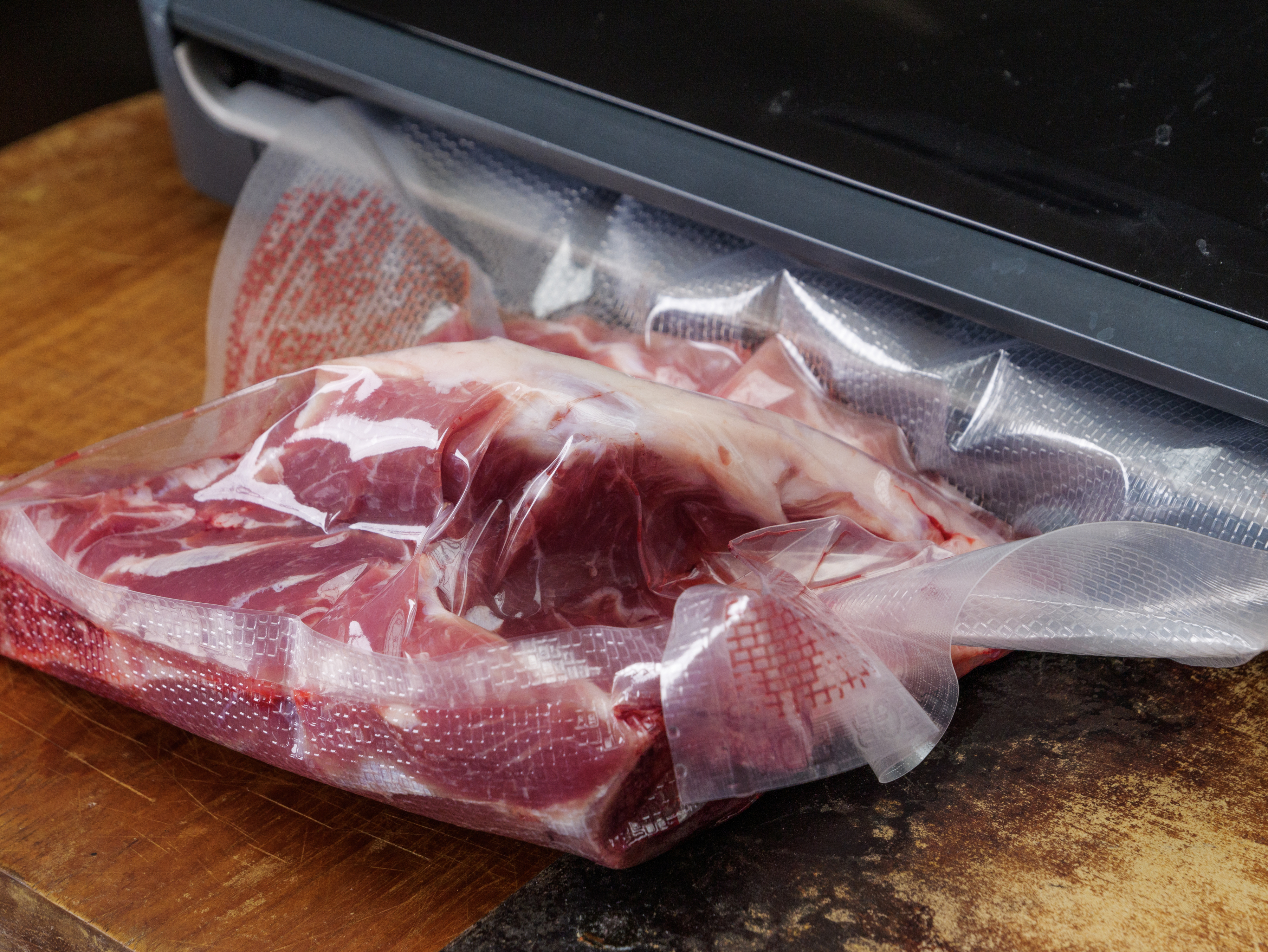
3. "I save a ton of money just by massively cutting back on meat in general. I usually buy a small free-range chicken once a week, roast it, and then use the meat in several meals. Admittedly, I'm only feeding two, so for us, it usually lasts three meals, plus the carcass for making stock to freeze."
"I'm no vegetarian — I love meat and fish — but I don't know where this weird idea came from that meat is an essential thing you eat at least once a day. It really isn't."
4. "I moved away from buying for a specific meal or recipe and now focus on versatility in meal components. Keep rice and/or pasta as a base then find vegetables that can be added or removed from multiple types of meals. Meats like chicken or frozen fish can also be added or removed from meals. Having a stock of building blocks lets me assemble meals on the fly to suit my mood and reduce ordering out because I am bored by what's in the fridge."
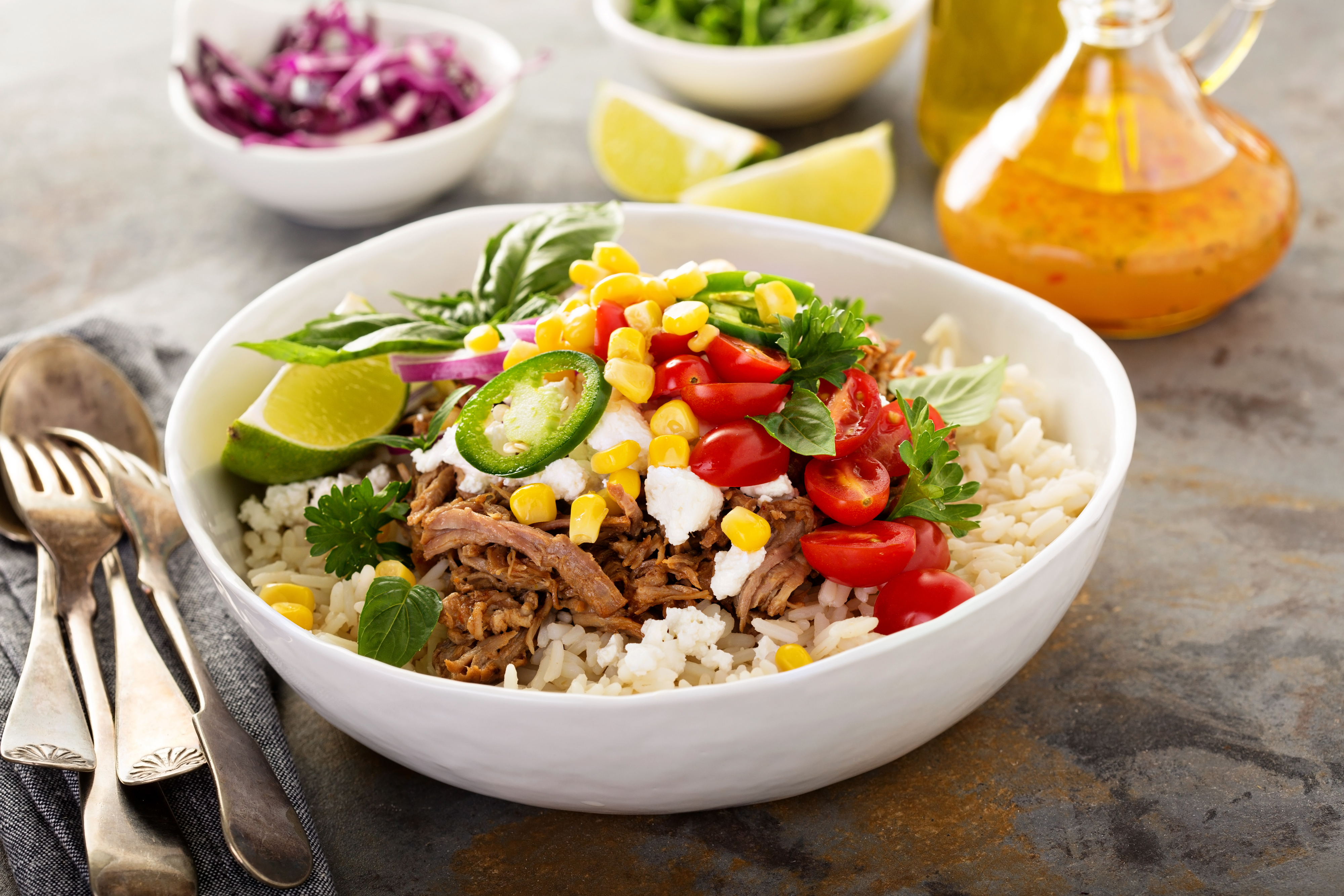
5. "I have a few methods that keep my bill under $30 for the week. First, I add all the things I am getting to a cart on Instacart so I know exactly how much it would cost. I can compare at other stores this way, too. This has been a game-changer for me. Sometimes, stuff costs a little more on Instacart, but the pricing is generally accurate with sales included. Second, I try to plan a menu that reuses ingredients from previous meals. This has saved me so much money."
6. "I make stock from all my meat bones and use the stock to cook my mashed potatoes and rice. I also buy spotty bananas and discounted berries at the supermarket when they're soggy and freeze them for my smoothies."

7. "I try to shop sales and plan my meals around what is currently affordable."
8. "When I see vegetables on sale for cheap, I turn them into pasta sauce, usually after roasting them for more flavor, and freeze them in portions to have with cheap pasta."
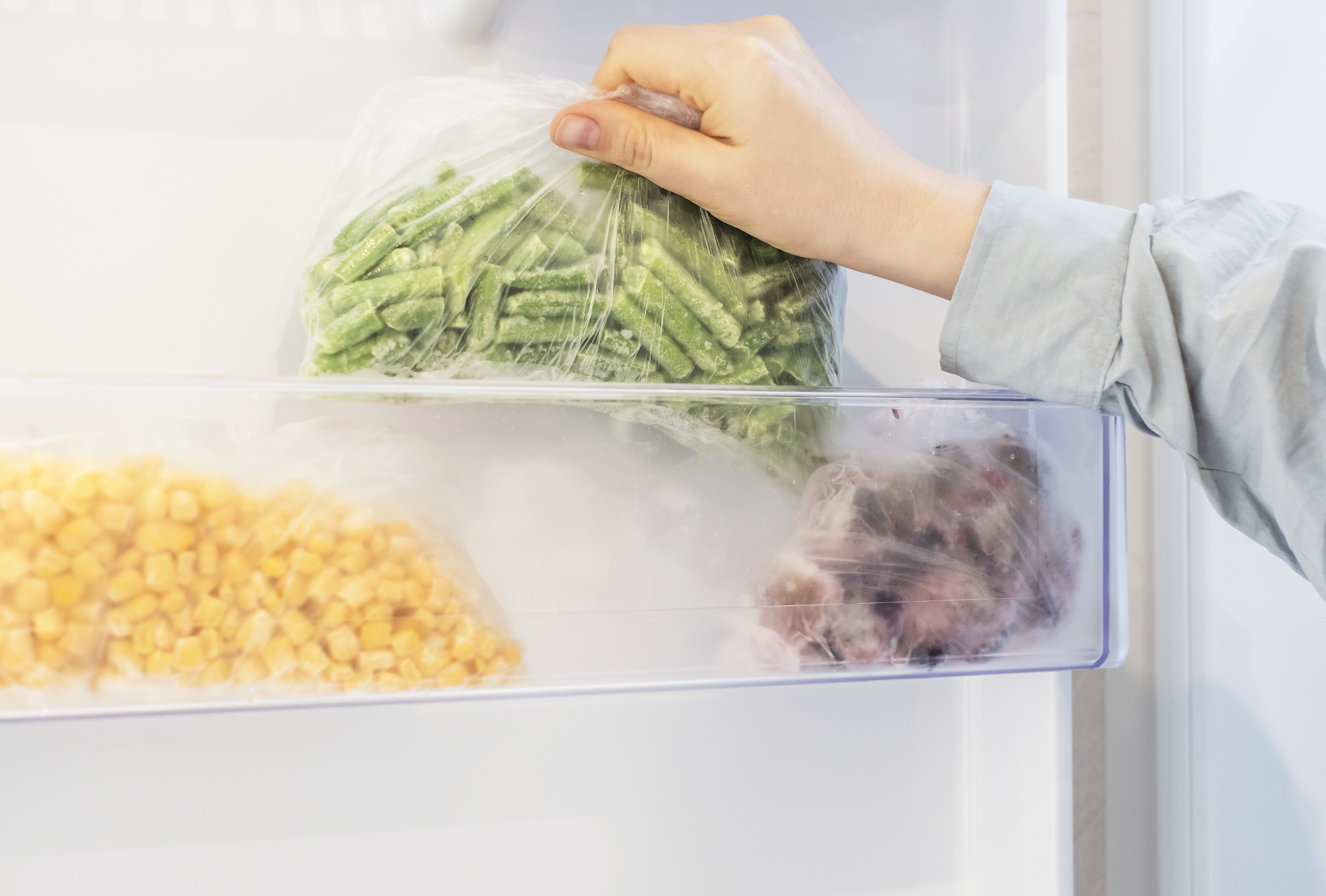
9. "I make a lot of soups and stews. I can make a meal for four using two chicken thighs, any leftover veggies, potatoes, onions, carrots, and chicken base. Then I season with herbs, bay leaf, and garlic. It's a cheap and easy meal — I'll even add bread or crackers to round it out. Any protein can be turned into the beginnings of a soup: beans, peas, lentils, or even eggs."
10. "Ethnic grocery stores are great for affordable bulk spices. Also, learn to cook with your scraps. I'm not crazy about using EVERY last bit, but using veggie scraps/bones for stock, orange peels for candied orange peels and simple syrup, and wilted greens in smoothies has saved me a lot of money over the course of a year."
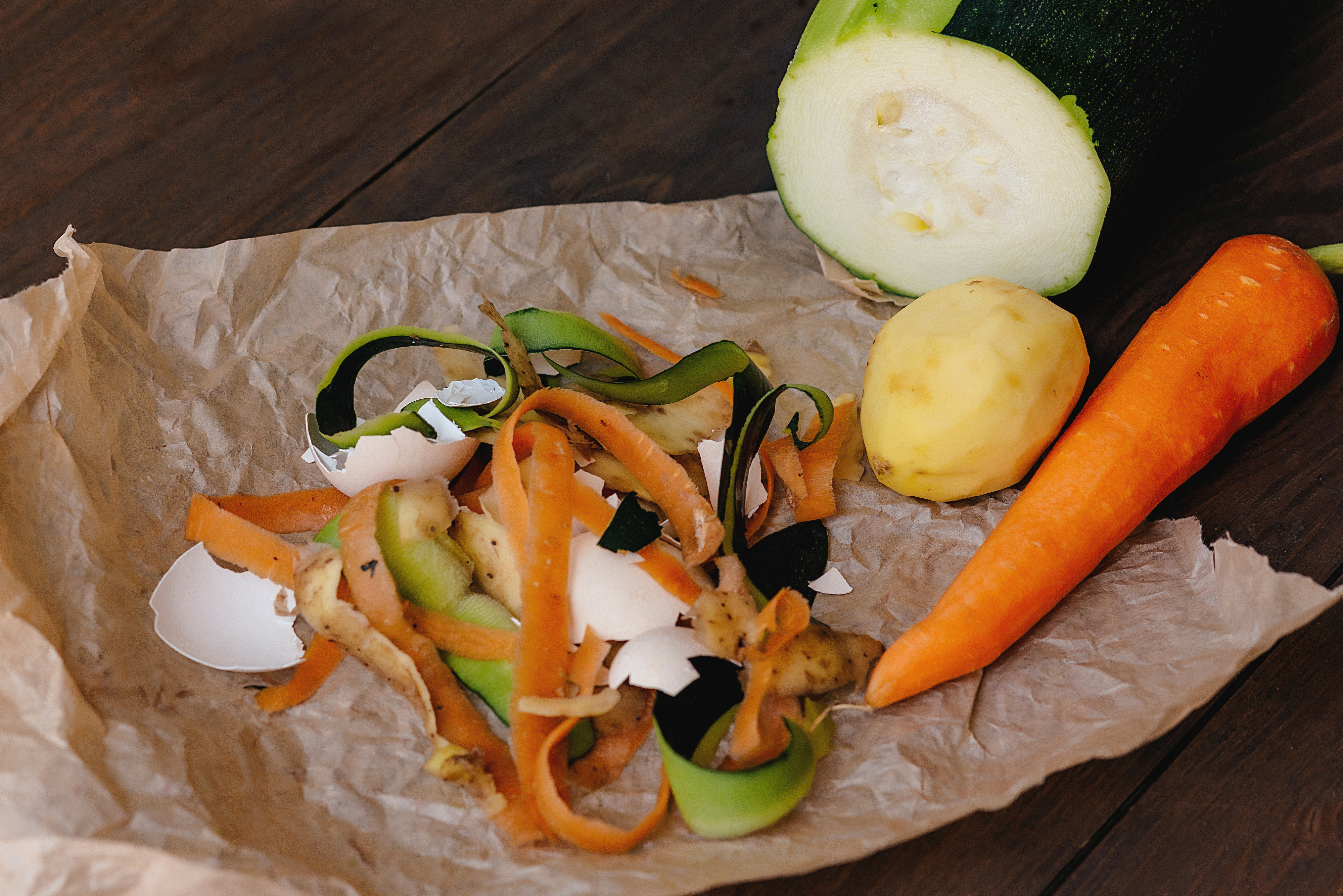
11. "Find a butcher — WAY better deals and cuts than grocery stores. I do splurge on boneless-skinless breasts, but my local butcher sells them for $2 per pound, so it isn't bad. I've gotten to the point now that when I go grocery shopping, it's mostly for vegetables and staples like rice, pasta, and potatoes. I get all the staples I need, and then I just prepare a staple with veggies and protein for a meal."
12. "I chose a credit card that gives me points toward free groceries. It certainly doesn't cover everything, but it's nice being able to reduce the total bill."
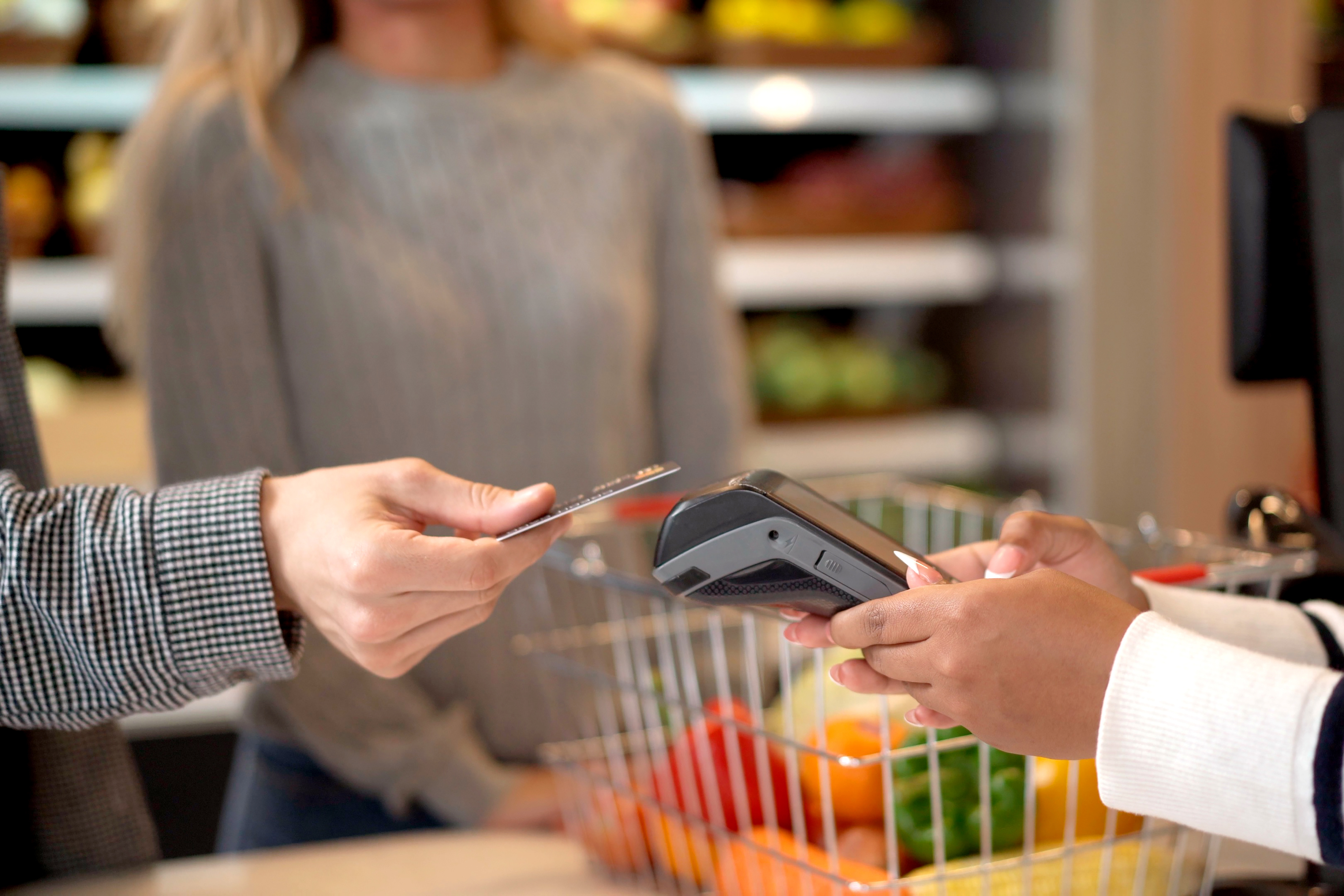
13. "I plan a full week of meals in advance using Pinterest to find recipes. This way I can find recipes that use similar ingredients, but in very different ways. For example: chicken and sweet potato tacos with street corn, corn and ricotta pasta with broccoli, and sweet potato masala curry with broccoli and rice. It helps me eliminate waste by using ingredients that come in larger quantities more than once."
14. "I make recipes for a family. I get three, four, or five servings from them. So, I cook one day, eat the leftovers until they are done, and then I cook again. This way I'm only cooking about eight times a month. Even if I spend $25 on the ingredients (which I usually don't), then it only costs me $200 for a month of dinners."
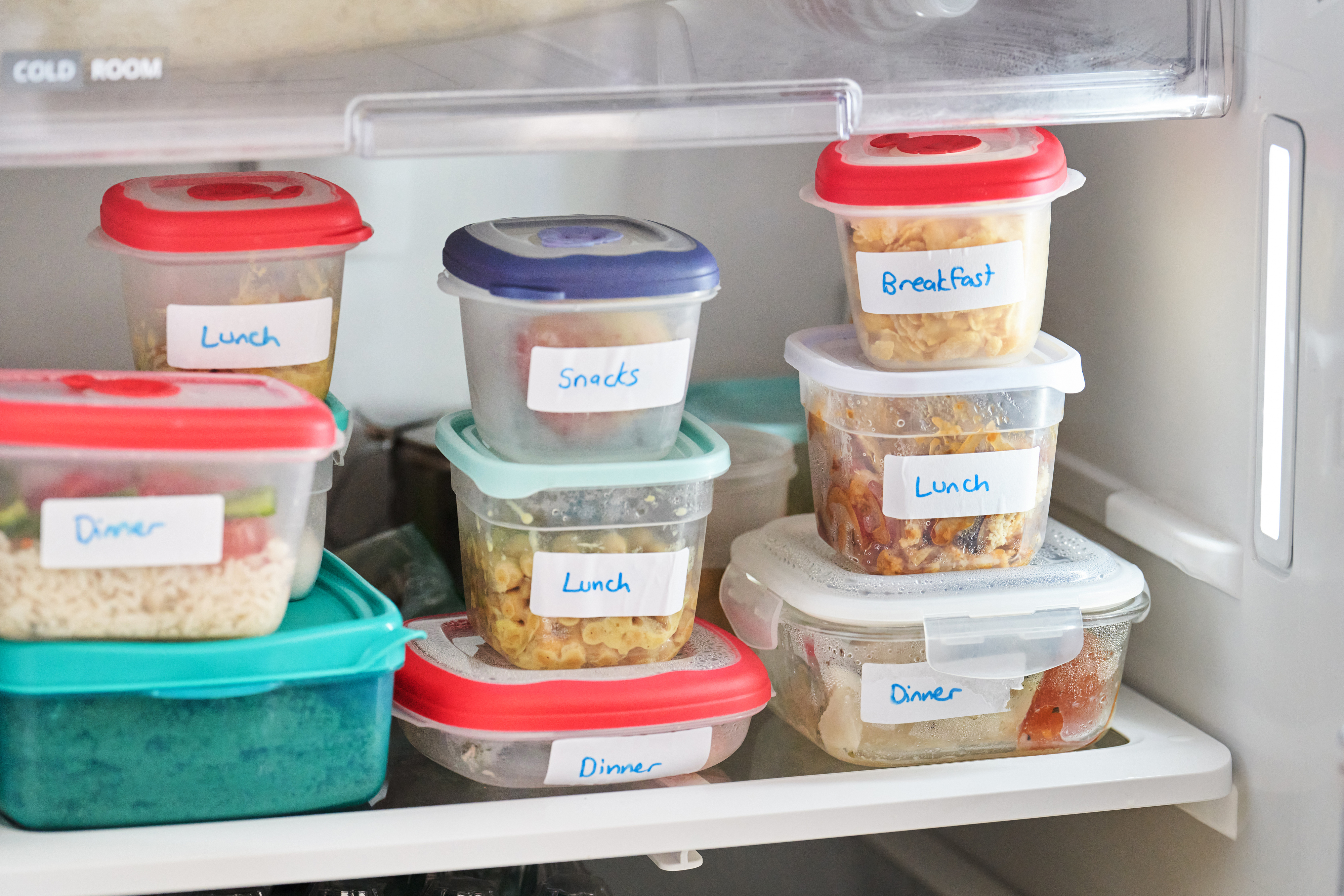
15. "I like buying one protein for the week and making meals around that. I find that it helps me waste less, stick to a budget, and utilize the things in my pantry more."
—Anonymous
16. "Dehydrating and pickling make food last a lot longer. My parents have a garden and always end up growing more food than they can eat, and I'm more than willing to take the extras, especially if I can dehydrate or freeze them."
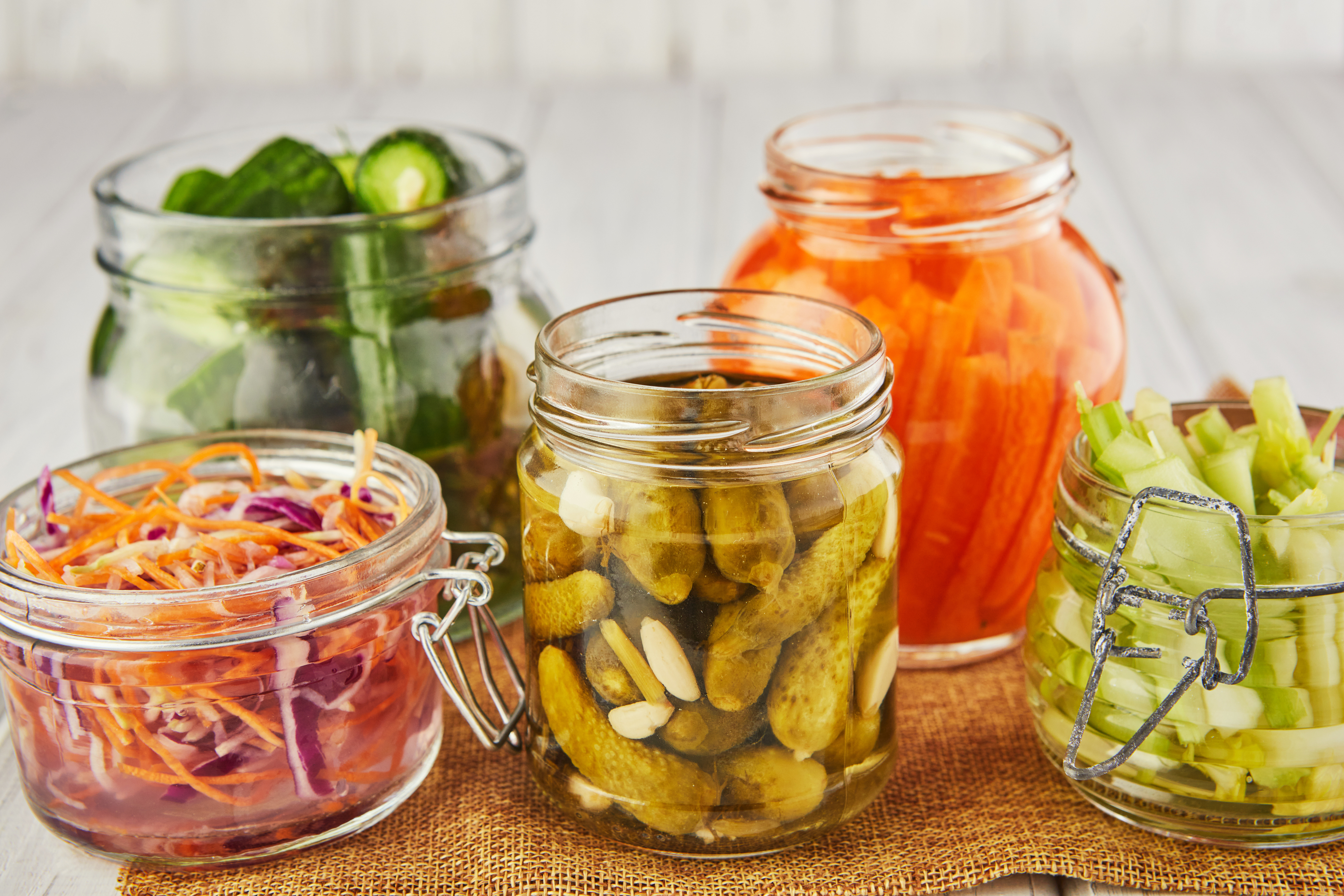
17. "Plan your meals. By that, I don't mean knowing exactly what you're going to cook and eat every single day because life gets in the way. I mean that, when you're going grocery shopping, have a rough idea in your head of what you want to cook and eat that week, write a guideline list, and don't buy more than what's on your list."
"Keep an eye on your cupboard ingredients like rice, pasta, lentils, tinned tomatoes, etc. because then you can just make a note of how much meat, fish, cheese, eggs, and veggies you need to buy that week — you'll always be able to make something."
18. "Learning how to cook tofu has made me a better chef, and it's also helped my wallet tremendously. It's so cheap, so versatile, and it can be delicious with a little practice."
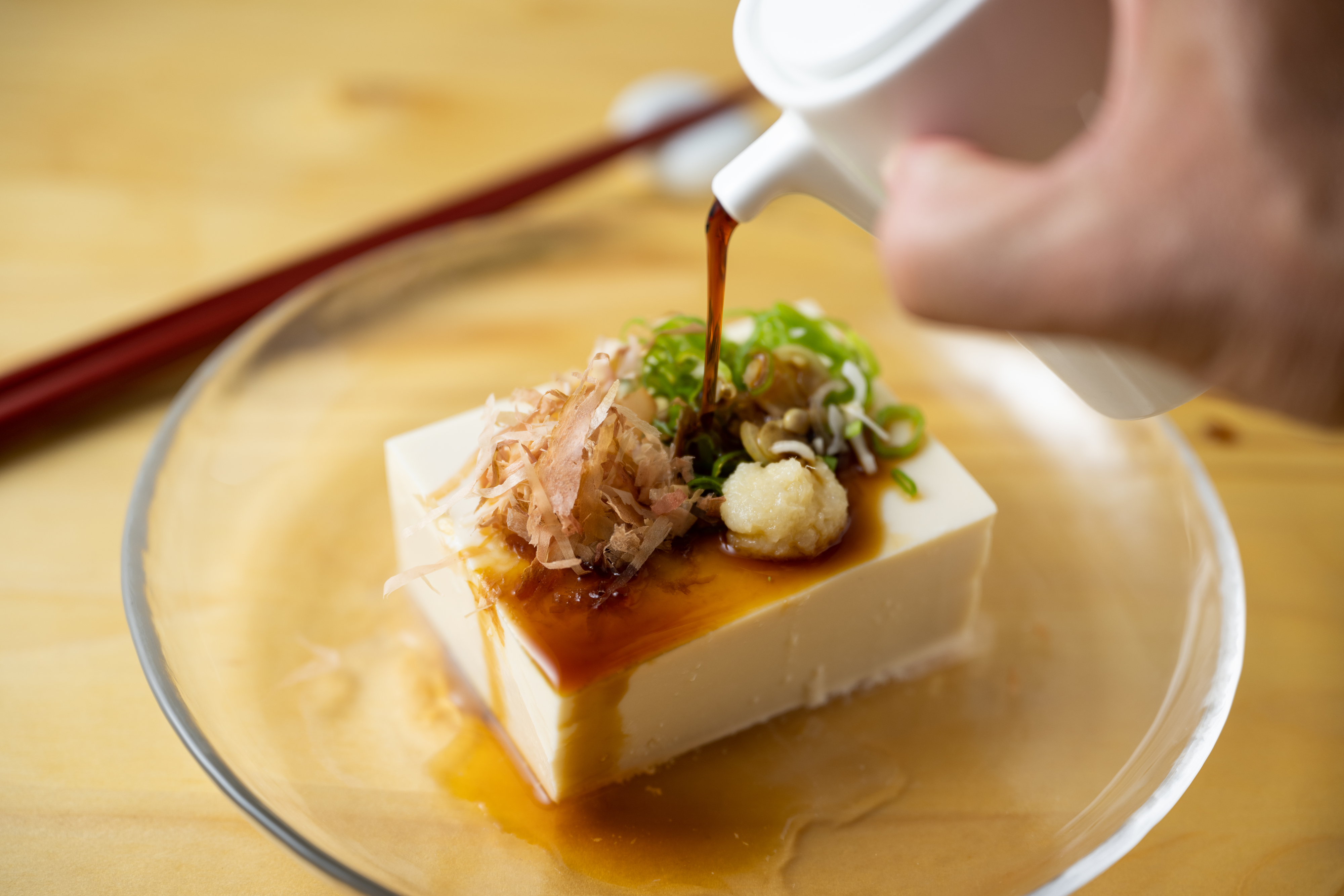
19. "Cooking in batches! I'm only ever cooking for one which is its own struggle, so I'll usually make enough for three or four meals at a time. It's also a major lifesaver when I just don't have it in me to cook."
20. "I maintain a full pantry. Any non-perishable or long-lasting ingredient you use frequently should be readily available. For me, that’s pasta, rice, flours, sugars, vinegars, coconut milk, various types of canned tomatoes, and yellow onions. If I ever need to stretch the budget, odds are I can 'shop' the pantry or buy some cheap produce to make a meal."
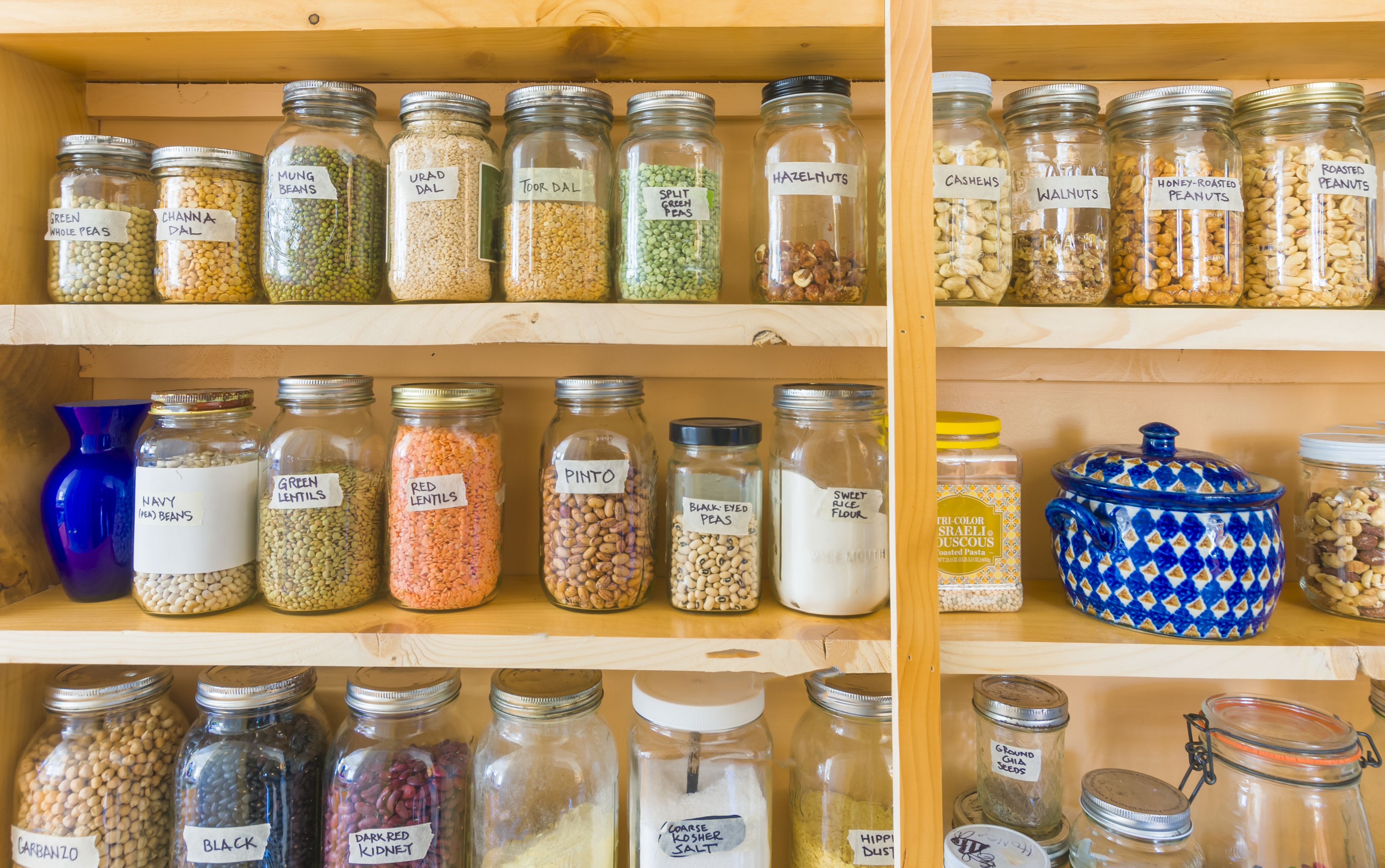
21. "Make your own pesto. It's very easy to make with a few simple ingredients and works out to be much cheaper, healthier, and tastier than shop-bought. It keeps in a jar for three to five days but can also be frozen. You can also get creative by tweaking recipes to come up with your personal favorites."
22. "I buy oatmeal and basic flour-type goods in bulk at a local health food store. The price is similar to a discount grocery store, but the quality is much better. I keep it in the freezer or a very cold refrigerator in glass jars with lids. We eat oatmeal most days and change it up by adding flax, apples, nuts, and fruits — it's pennies a serving."
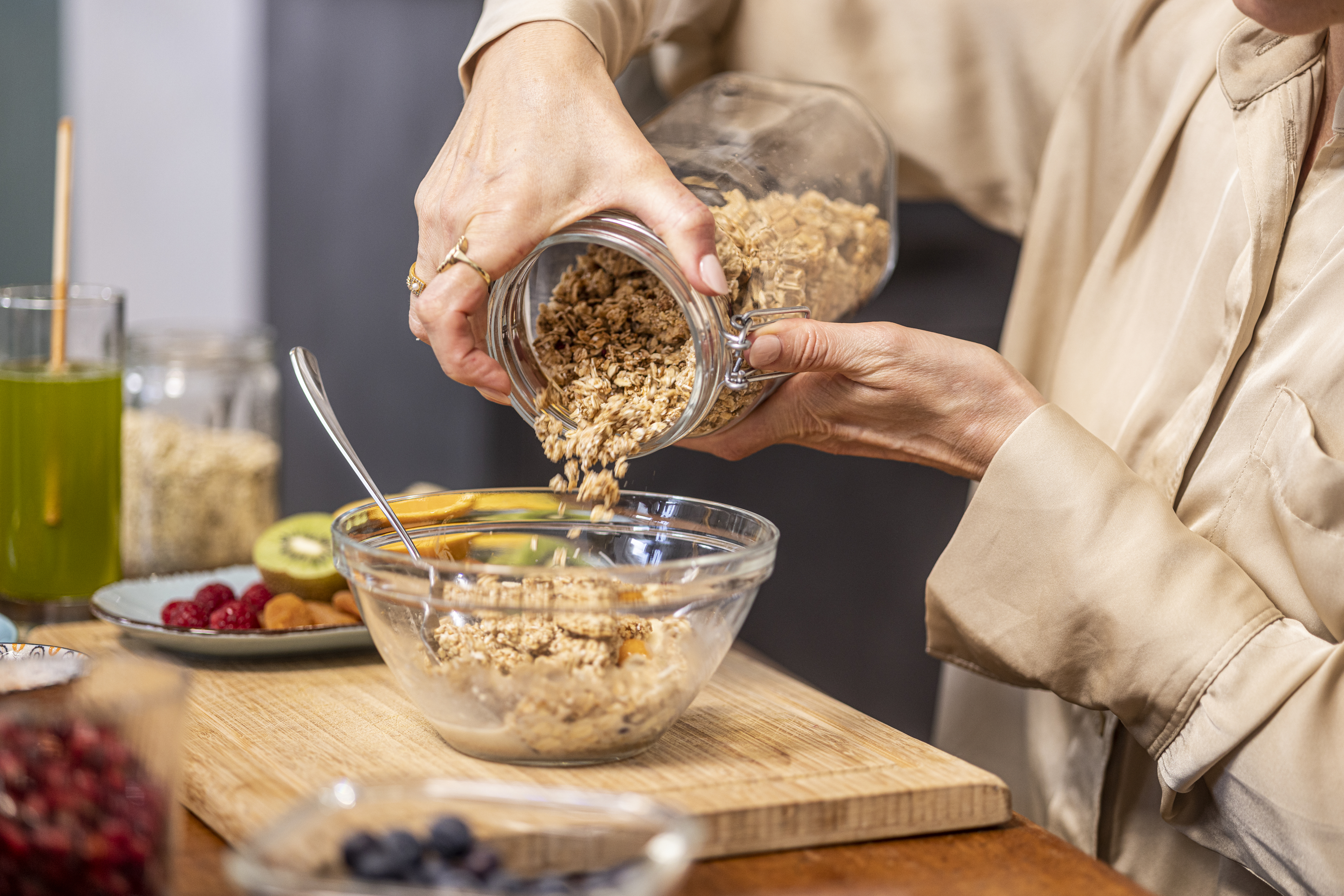
Are there any money-saving cooking tips that you swear by? Let us know in the comments!
Note: Submissions have been edited for length and/or clarity.
